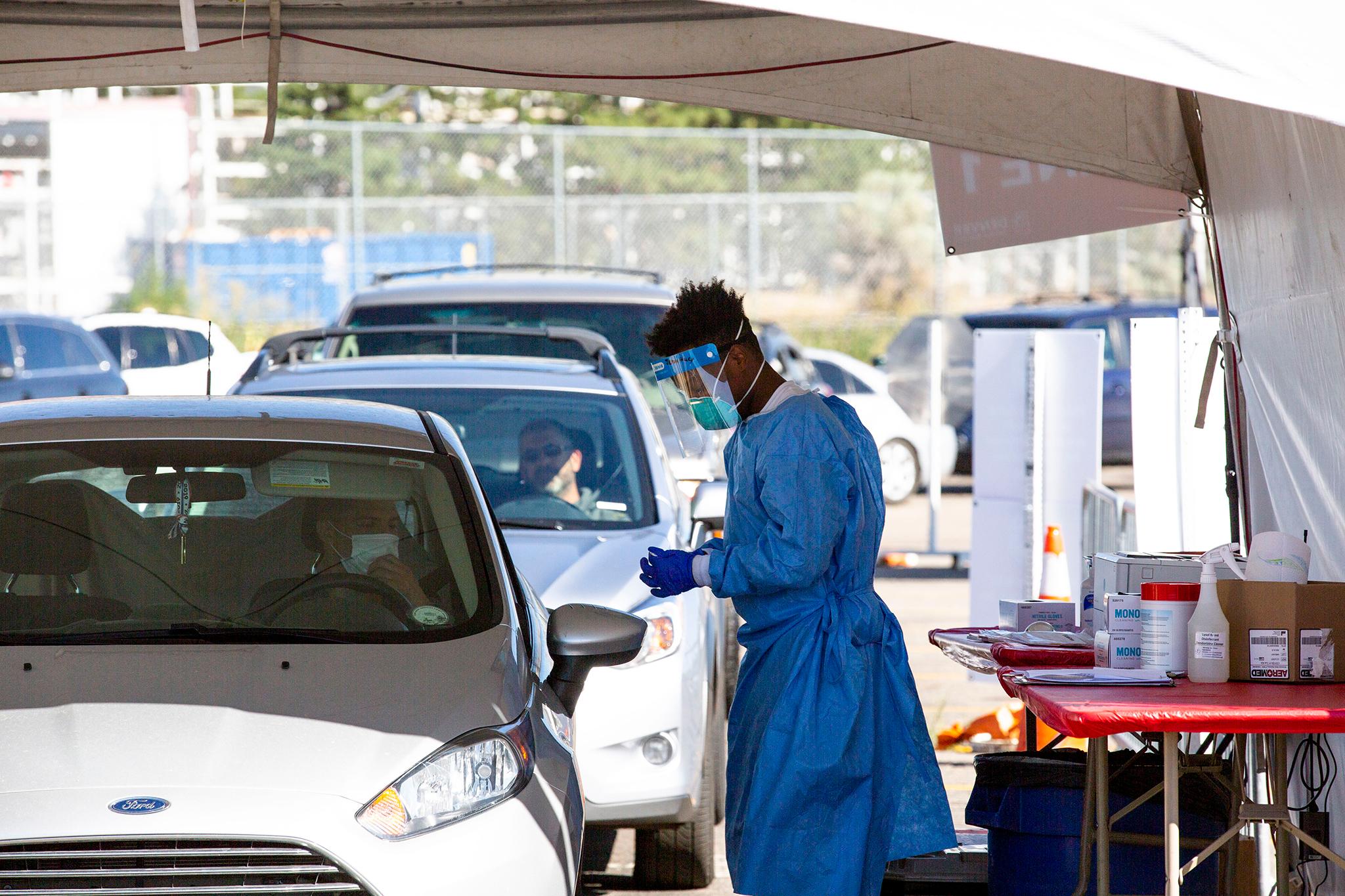Mayor Michael Hancock on Friday encouraged residents to continue wearing face coverings and take steps to prevent the spread of the coronavirus as the city sees an increase in daily cases and a rise in the overall positivity rate.
While Hancock said the increase is not as dramatic as those seen in other cities or states, he warned that their realities are a reminder that resident and visitors should continue taking steps to stop the spread of COVID-19. The disease has led to 323 deaths in Denver, according to the latest available figures from Denver Public Health.
"We are going in the wrong direction, and that is of concern to us," Hancock said during the virtual meeting.
Between July 3 and Friday, the city's positivity rate has increased from 3.5 percent to 4 percent. The World Health Organization recommends a 5 percent or lower positive rate for at least 14 days before reopening. Hancock said one good sign is hospitalizations remain flat, meaning hospital capacity is in good shape.
Hancock asked people to avoid gathering in large groups, practice social distancing by staying at least six feet away from others, and constantly washing hands. He noted that practicing these steps could help avoid another spike in cases and hospitalizations.
If cases continue to grow and more non-compliance with local orders increases, Hancock said, the city could start to consider shutting down the local economy again like it did in March. He acknowledged such a move would be "devastating," so it's something the city wants to avoid.
Hancock said the city is averaging just over 10,000 tests a week. Much of the testing is taking place at the city's free testing site at the Pepsi Center, which has recently seen a spike in demand. The site now limits the number of daily tests to 2,000 to prevent backlogging results. The city also provides mobile testing and testing at community sites in under-served neighborhoods.
City public health executive director Bob McDonald said Denver's public health department is one of the few in the country providing a mobile testing option. The community testing is done in partnership with Denver Public Health.
The city's face-covering order remains in place and has been updated to align to the state guidelines. The order requires people to wear things like face masks when visiting or waiting in line at most local businesses or public buildings, inside local transit and at healthcare offices. He encouraged people to listen to Gov. Jared Polis' message on Thursday when the governor asked residents to "wear a damn mask," during a press briefing.
The city has seen a 60 percent spike in complaints about face coverings to the city's public health agency. Hancock added that investigators are seeing more examples of non-compliance.
"Please hear me: Face coverings are required in Denver," Hancock said. "The order has not been relaxed, has not gone away."
The mayor applauded regional efforts in surrounding cities and counties requiring more face masks (though officials in one metro county, Douglas County, have already signaled their intent to opt out after such a rule was introduced).
Chief housing officer Britta Fisher said the shelter for men experiencing homelessness at the National Western Complex has served more than 3,000 clients, with a nightly average of 668 people. The Denver Coliseum shelter for women has served 774 clients, with a nightly average of 169 people. Fisher said the city has provided more than 200,000 meals.
The city had 7,565 COVID-19 cases as of Wednesday, according to Denver Public Health.














